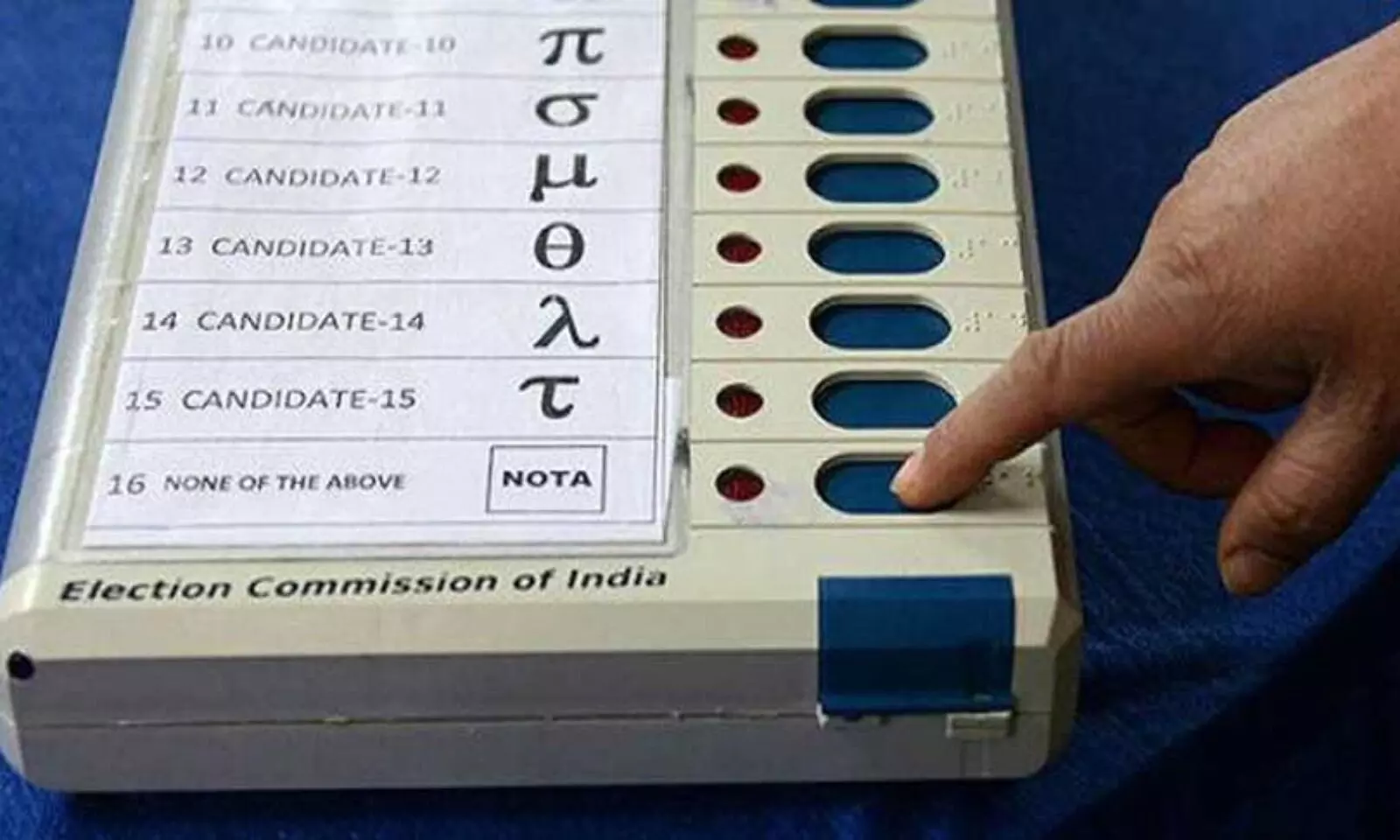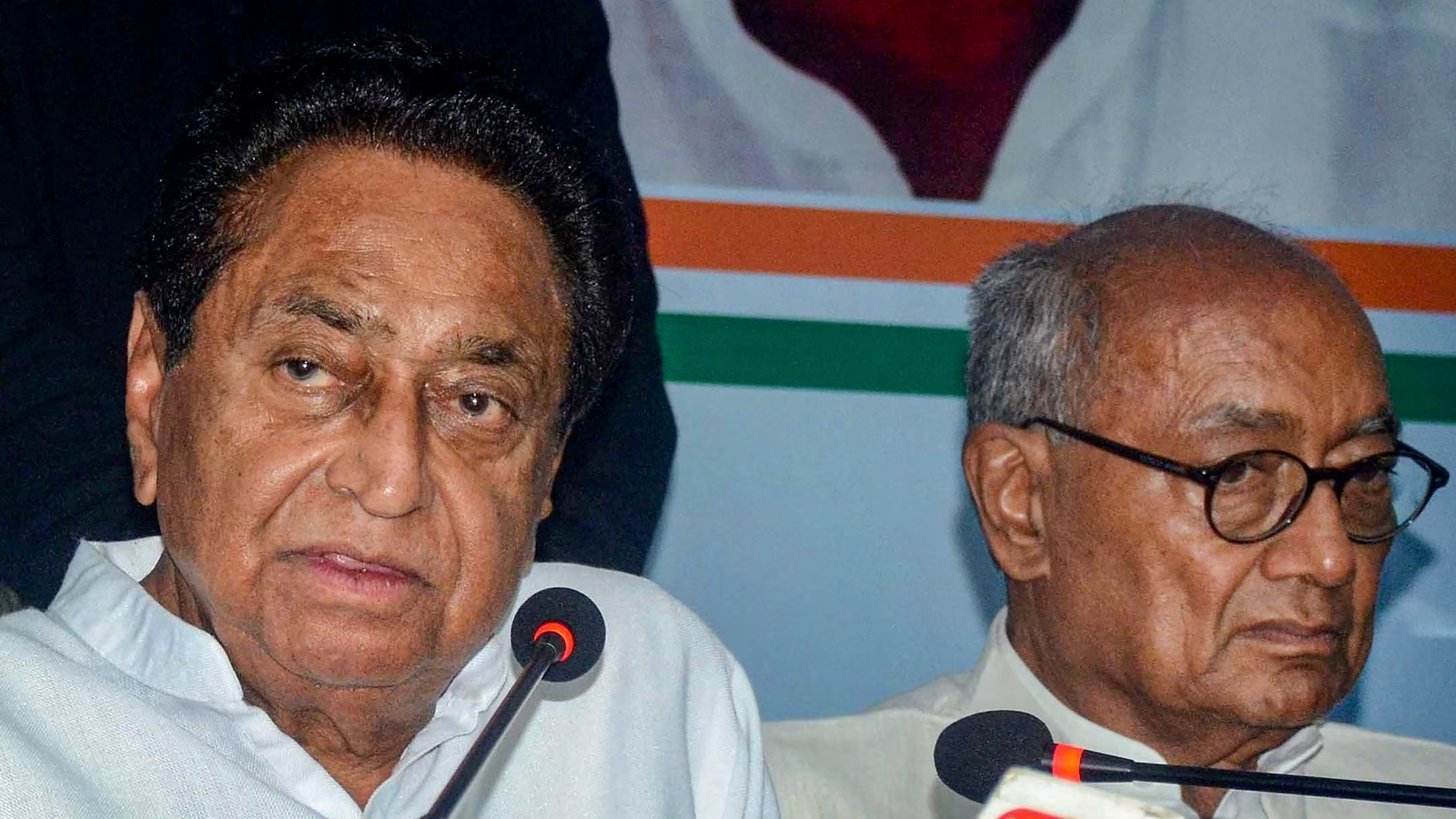
Electronic Voting Machines: Doubts should be cleared
text_fieldsWith the general elections just months away, the electronic voting machine (EVM) has become a hotly debated issue. Although complaints arise before and after every election, this time serious arguments are being raised in such seriousness that the voting machine would determine the credibility of the election itself. It was after the 2019 general elections, that the reliability of voting machines began to be seriously questioned. In the recently held assembly elections as well, the leaders concerned alleged that the voting machines were behind the huge gap they claimed to have seen between the popular vote and the election results. The Citizens Commission of Elections (CCE), presided over by Justice (Retd) Madan Lokur and composed of former IAS officers, professors, journalists, activists and technical experts, has highlighted some serious flaws and recommended the necessary corrections to ensure the credibility of the elections. The opposition alliance INDIA, has filed a petition with the Election Commission, raising serious concerns about the use of voting machines and demanding an immediate solution. The Supreme Court in September rejected the petition, but it did not clear the doubts. There is a high possibility of issues including the voting machines going to court again. It is noteworthy that skeptics include not only opposition political parties but also impartial public servants, computer experts and lawyers. Even though some demanding a return to the old ballot paper system, many from CCE to INDIA want reforms to restore the reliability of the voting machine so that everyone is convinced. The Election Commission has the responsibility to fulfil this absolutely reasonable demand.
The advantages of voting machines are evident. An example is the speed of the voting process and the counting of votes as well as reduced cost of elections. At the same time, its significant drawback is the lack of transparency. Another is the possibility of the computers being hacked. There is also the argument that machines can be tampered with. A 'cyber expert' from Chicago had made headlines when he alleged that the 2014 election was rigged. A research paper pointed out that widespread irregularities were seen in the 2019 election results. There was a discrepancy between the number of votes and VVPAT (Voter Verifiable Paper Audit Trail). Although the Election Commission regularly denies the allegations, the distrust in the voting machine increases each time. At one point, the Election Commission announced a 'hackathon' challenging the voting machine to be hacked but to no avail as none of the major parties participated. Moreover, not only the voting machine which includes the balloting unit and the control unit, but flaws in the methods like VVPAT also damage the credibility of the election. Since India began relying on voting machines in the 1980s, 31 countries have used or tested them. Many did not go beyond the trials, and some gave up after using them. Finland, which introduced the voting machine system in 2008, later scrapped it, finding that it did more harm than good. In Germany, the court declared the voting machine unconstitutional and banned it. Netherlands, Norway, Kazakhstan and Romania have also given up after testing the voting machine.
The Commission and others justify the use of voting machines in India by repeatedly stating that it cannot be tampered with. However, after realizing its lack of transparency, the Commission was forced to introduce VVPAT - that too only partially and with flaws. VVPAT even today, is neither universal nor complete. It is shown to the voter; but only after voting. There is still no guarantee that a vote cast by the voter has been accounted for the candidate of his choice, that the vote is accurately recorded and that it is counted properly. Audits are not consistently conducted to ensure that all parties understand the workings of the machines. Furthermore, the question has not been examined to what extent the incredible advances in the field of technology, including Artificial Intelligence, since the introduction of voting machines, have affected it. Machines, software and their quality testing are all checked by government-controlled committees. Most recently, with the implementation of the law to replace the Chief Justice of the Supreme Court with a Minister on the committee recommending names for the Election Commission, the Commission has come under the full control of the government. Despite all this, it would have been a relief if the authorities had the moral sense not to manipulate the elections. That situation does not exist today. As Sam Pitroda said, voting machines today may give judgment against the will of the people. It is not enough that the election is free and fair, It should also been seen to be so. And that responsibility lies with the Election Commission.

























